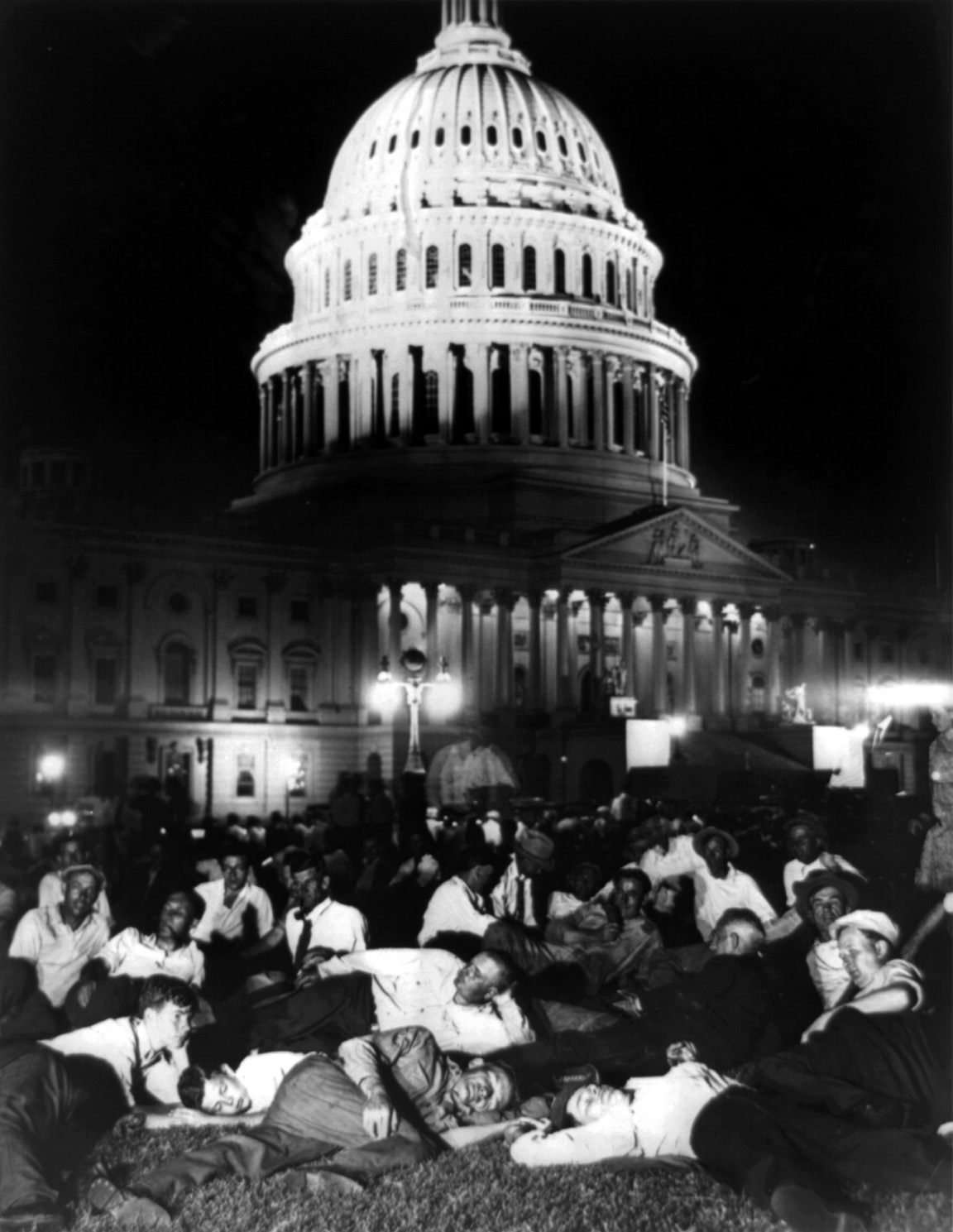
In 1924, Congress promised to reward bonuses to WWI veterans for their service, including $1.25 for each day served overseas and $1.00 for each day served in the United States. This amounted to about $1000 for each veteran. These would not be redeemable until 1945. Hit by the Great Depression, in 1932, many of them lost their jobs, and demanded that their bonuses be redeemed early. They also became frustrated with Hoover's inaction in providing adequate relief for the unemployed.
In May of that year, around 15,000 veterans marched to Washing D.C. to draw attention their problems and demands. President Hoover refused to address them, however, a debate began in Congress of whether or not the bonuses should be given early. Meanwhile, the Bonus Army, as they called themselves, raised camps at various places around the city and waited. Their shelters were made directly from materials out of junk piles, such as old lumber and packing boxes.
To the veteran's despair, the Senate voted on July 17 and defeated the bill 62 to 18. Orders were also given to the police force to evacuate the veterans from government property. The police, however, was met with resistence, and resulted in killing two marchers. Upon hearing the news, Hoover ordered to clear out all veterans, and sent in infantry, cavalry, and 6 tanks.
Thus ended the unsuccessful Bonus March. The outcome was largely connected to Hoover's failure to recampaign. Americans were outraged by the way the veterans were treated, and Hoover was blamed for his cold-heartedness in his solution to the march.
Sources:
http://www.eyewitnesstohistory.com/snprelief4.htm
http://www.ushistory.org/us/48c.asp
This was a great post - especially the idea that Hoover's treatment of veterans resulted in a loss of political capital. Even today, many politicians look to appeal to veterans and discuss issues regarding veteran affairs as former military personal remains a large voter base for the electorate. It isn't surprising that the Secretary of Veteran Affairs became an official cabinet position later in 1989.
ReplyDeleteI like how you told the story through a linear fashion allowing the reader to experience the events like they happened in real life. I also liked how you showed the perspective of the people and the veterans at the same time.
ReplyDeleteIts surprising the scale that the government's retaliation took in using tanks and gas. Do you think this really was Hoover's fault, or do you think Hoover had intended a different resolution, whether or not it was blamed on him?
ReplyDelete